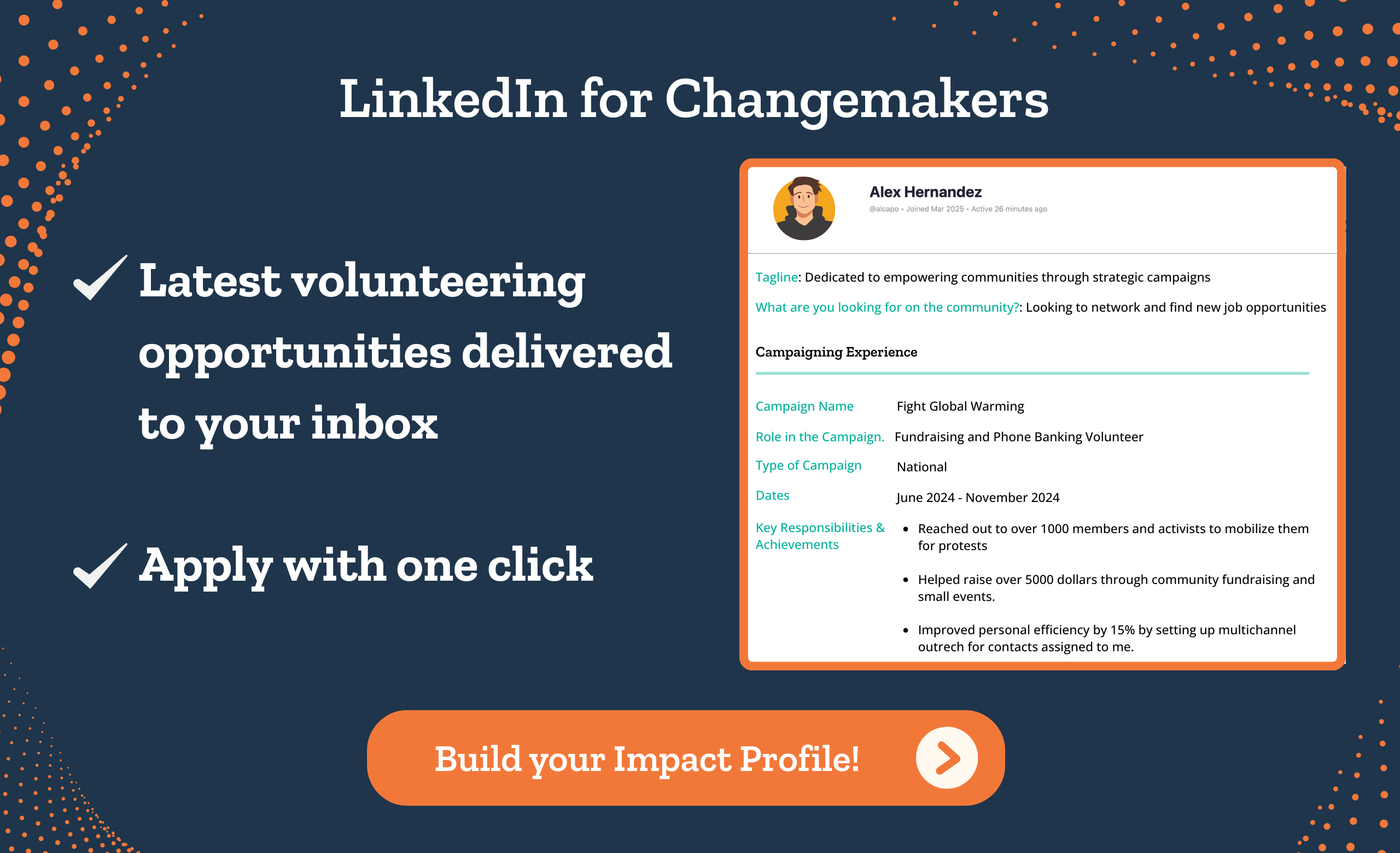Table of Contents

Communication is essential for all kinds of organizations, especially summer camps. Effectively communicating both within your organizational structure and in your outreach attempts can greatly boost your ability to function properly. Implementing communication best practices when engaging with your volunteers is an integral part of your camp and is necessary for proper camp management.
Never underestimate the value of a dedicated volunteer. Volunteers will often share your leadership team’s enthusiasm and passion for your camp and it is important to take advantage of their zeal. Their attitude and engagement level is crucial to the success of your camp and the experience of your campers.
Therefore, motivating volunteers to convey their love for your camp and proactively give campers a great experience should be top priorities. However, effectively engaging with your volunteers is not always easy. Effective communication is a vital part of the way your camp runs and can drastically affect your volunteers’ engagement in your camp.
Communication plays an integral role in many parts of your camp and, when managed correctly, can help you increase volunteer engagement by enabling you to:
- Manage your volunteers.
- Grow your volunteer network.
- Develop relationships with your volunteers.
- Equip volunteers with the tools they need.
Don’t let your camp volunteer management be held back by insufficient technology and communication strategies. Let’s dive in and prepare you to reconsider the way you communicate with donors!

1. Manage your volunteers.
Managing a camp is no easy feat—and you’re probably very reluctant to add yet another responsibility to your ever-growing task list. However, managing your volunteers and their data effectively is not something that should fall through the cracks. Managing your volunteer data throughout the length of each volunteer’s involvement with your organization will lead to more effective communication with more beneficial outcomes.
Because you work with kids and teens, it is important that you have a system in place that can help you efficiently interview prospective volunteers and better determine whether they are suited to be involved in your camp. To best manage your volunteers and navigate the tricky obstacles that introducing new volunteers to your camp often presents, utilize camp management software.
Camp management software will help you organize your volunteer information with tools designed to:
- Facilitate interviews. An in-person interview will help volunteers assess their interest in your camp as well as inform your impression of their potential future involvement in your camp. Your software platform should enable you to neatly create, organize, and store notes from each interview.
- Respond electronically. If your camp is like so many others and requires a commitment from volunteers to participate in a predetermined number of camp sessions, your software should allow you to extend offers and accept responses electronically.
- Effectively onboard volunteers. Volunteers need to know how your camp runs and you need to be able to communicate this to them effectively. Using your camp software’s onboarding tools, you will be able to introduce everyone to your camp and satisfy all onboarding requirements completely digitally.
For more information on how you can enhance your communication strategies with camp management software, check out the CircuiTree guide to camp management.

2. Grow your volunteer network.
Effective camp communication does not only refer to internal communications. It also extends to include valuable outreach efforts as you attempt to grow your volunteer network.
Recruiting volunteers can take many forms, and your camp recruiters should vary their approach to ensure they reach the most people—use email and calling strategies to guarantee maximum impact.
Managing and expanding your volunteer network can be tedious and time-consuming, but with the right software, you will be able to contact individuals who have the highest likelihood of getting involved in your camp. Larger nonprofit organizations are often experts at recruitment, so summer camps and smaller organizations should take a note from their playbook.
When considering your email strategy, make sure you are able to send:
- Scheduled emails. Just like camps have busy seasons, camp recruitments have busy seasons. Don’t let your camp fall behind during the busy season by employing software that can schedule outreach emails with ease!
- Automated emails. Automated emails, crafted from any number of preloaded templates on your software, will help you regularly engage with potential volunteers with little to no extra effort on your part! This means you can begin the recruiting process without distracting from your other responsibilities.
- Mass emails. Widen your camp’s reach—and increase its margin for success—by sending mass emails to hundreds (or thousands!) of potential volunteers. There are people out there that would love to volunteer at your camp, so give them the chance to become involved by ensuring your message gets to them!
Your phone strategy will require a slightly different approach. When developing a call strategy to recruit volunteers, it is important to:
- Segment your call list. In this day and age, the number of people willing to simply chat with a stranger on the phone is dwindling fast. Increase the likelihood that people accept your call and stay on the line by segmenting your prospective volunteer list. This will ensure individuals who have expressed interest in a particular camp session or age group are only contacted about the groups they have indicated.
- Get personal. Phone calls allow for a greater level of personal investment as you can speak more directly to the recipient. Encourage your callers to try to get to know the voice on the other end of the line as they try to figure out the best possible way to interest them in further engaging with your camp.
Growing your volunteer network is hard, but it doesn’t have to be impossible. By following these communication strategies, you will be able to reach prospective volunteers and encourage them to learn more about your camp!

3. Develop relationships with your volunteers.
Volunteers are a valuable resource that should be treated as such if you want them to display any level of volunteer loyalty. It is better for all involved if your volunteers have the desire to continue working with your camp. Develop lasting, meaningful relationships with all of your volunteers through open communication and team building.
You can easily develop stronger relationships with your volunteers with the following strategies:
Listening to their feedback.
Communication is a two-way street. Just because it’s a cliche doesn’t mean it doesn’t still carry a ring of truth! While your leadership team needs to be able to communicate all of your expectations and information to your volunteers, it is equally important that your team listens to feedback from all of its volunteers.
At the end of every summer, send out evaluations that invite camp volunteers to honestly provide feedback on their experience at your camp. You may wish to ask questions like:
- What was your favorite part of being a camp volunteer?
- On a scale of 1-10, how accessible was the leadership team on a daily basis?
- Is there anything you think needs to be changed before next summer?
Make real changes based on volunteer feedback and you will see an increased level of volunteer engagement and loyalty from summer to summer.
To read more on how you can receive feedback from your volunteers, check out the CircuiTree guide to summer camp evaluation forms.
Wearing branded merchandise.
Nothing creates a sense of unity quite like wearing matching shirts. A great way to stimulate open conversation and engage more volunteers is to encourage a t-shirt design contest. Your volunteers can all work together during camp training or orientation to design the perfect shirt that helps you present a united front for the rest of the summer.
This activity will encourage free discussion as well as acclimate your volunteers to operating in your camp’s culture.

4. Equip volunteers with the tools they need.
Your volunteers should be able to communicate, not just to your leadership team, but to campers and their parents as well. With the right camp management software, you will be able to equip all camp volunteers with the right tools they need to effectively do their jobs.
The volunteer portal on your management software will put power—and responsibility—in the hands of your volunteers. They will be able to:
- Manage their online profile. Your volunteers will be able to collect electronic medical records to satisfy your health department’s laws and sign any terms and conditions you require digitally.
- Request information from parents. Let your volunteers handle some of the parent communications. This will lessen your load as well as ensure your volunteers and camper’s parents can easily exchange important information that is vital to the success of your camp, such as camper medical information and schedule activities.
- Access important camp details. Showing volunteers your camps impact within your community will get them more invested and thereby more likely to stay involved in your camp every year.
Set your volunteers up for success by equipping them with all the tools they need to succeed. Your camp should not be held back by ineffectual internal or external communications that can easily be solved with camp management software.
Click here to read more about camp database software and how you can implement it effectively.
Being able to communicate effectively and efficiently across your camp undoubtedly leads to better camp management. When your camp runs smoothly and you don’t have to worry about communication obstacles, you will be able to engage volunteers and keep them invested in your camp every summer.
Author: Glen Greenstone

Before becoming a camp professional, Glen enjoyed many other pursuits. A native San Diegan, he worked through college as a 9-1-1 dispatcher. He has a passion for literature and the outdoors, and is a veteran of U.S. Coast Guard, so he naturally loves to get out on the water with his wife and two kids whenever possible. He loves hearing camp cheers outside his office window during the summer, while helping camps across the country overcome their unique challenges!
